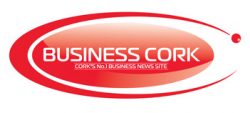The UK will be leaving the EU on 31/10/2019 and with that date fast approaching it is vital that businesses are aware of what steps they should take to ensure that they are as ready as possible.
One such step is to contact your local enterprise office as they will be able to tell you of the government supports available to you to navigate the process of getting ready. There is a lot of good practical advice also available on www.revenue.ie if you search ‘Brexit’. Enterprise Ireland has an online tool ‘the Brexit Scorecard’ which can help you to carry out a Brexit impact assessment to understand where and how your supply chain may be impacted.
Some of the other things to consider would be if you plan to continue to trade with the UK or your supply chain is partly dependent on the UK then you need to take steps to mitigate the impact of Brexit. You should contact your suppliers in the UK to ensure they will able to continue supplying you with the goods or services that you rely on. For non-UK suppliers you should contact them to see if the UK is a land bridge when delivering goods, as there could be delays and cost implications as a result of Brexit.
You will also need to consider the implications Brexit will have with regards to Customs. Customs declarations will be required to move goods from Ireland to the UK and vice versa. Both “import” and “export” declarations will be required.
In practice, much of the customs requirements can be handled by an agent or operator moving your goods. You will, however, be responsible for providing your appointed agent with accurate information. Incomplete or inaccurate information will lead to delays which could cost you money. You will need to obtain an EORI number and this can be done by logging into your Ros account on www.Ros.ie or by contacting us at info@paulodonovan.ie and we can do this for you.
After Brexit, Customs Duty will apply to the import of many goods from the UK into Ireland. Unlike VAT, which is recoverable by many businesses, Customs Duty is not recoverable and will represent an additional cost of import.
The rate of Duty arising on goods depends on the classification of those specific goods. All goods should have an assigned classification code.
In order to mitigate the potential cash-flow burden, the Minister for Finance proposes to introduce a legislative change to introduce a system of postponed accounting whereby importers will not pay import VAT at the point of entry but will instead account for import VAT through their bi-monthly VAT return.
Since the Brexit vote, the value of Sterling has depreciated approximately 13% against the Euro and is expected to remain volatile as political and economic uncertainties continue.
Currency exposures for businesses stem not only from the transaction exposure of translating Sterling sales at a weaker rate, but also from reduced competitiveness against now cheaper local UK alternatives.
Estimate potential currency exposure by identifying the extent by which any Sterling denominated revenues are not offset by Sterling costs. In particular, it is important to test the impact of 10-15% currency changes on your costs of inputs, sales prices and profitability.






